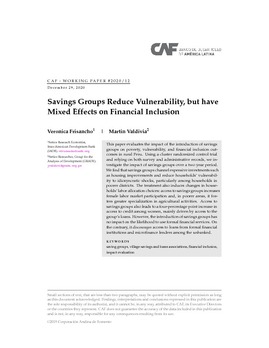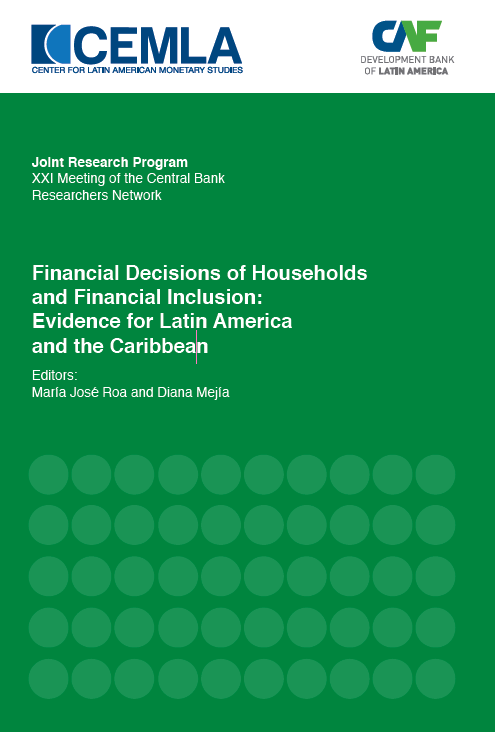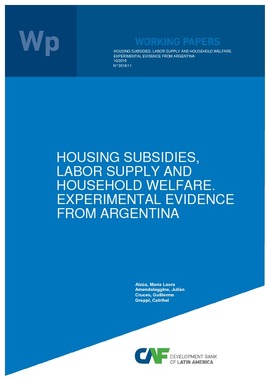Savings Groups Reduce Vulberability but have Mixed Effect on Financial Inclusion
Abstract
This paper evaluates the impact of the introduction of savings groups on poverty, vulnerability, and financial inclusion outcomes in rural Peru. Using a cluster randomized control trial and relying on both survey and administrative records, we investigate
the impact of savings groups over a two year period. We find that savings groups channel expensive investments such as housing improvements and reduce households’ vulnerability to idiosyncratic shocks, particularly among households in poorer districts. The treatment also induces changes in households’
labor allocation choices: access to savings groups increases female labor market participation and, in poorer areas, it fosters greater specialization in agricultural activities. Access to savings groups also leads to a four-percentage point increase in access to credit among women, mainly driven by access to the group’s loans. However, the introduction of savings groups has no impact on the likelihood to use formal financial services. On
the contrary, it discourages access to loans from formal financial institutions and microfinance lenders among the unbanked.
Subject
Country / Region
Date
2021-01-08Cite this publication
Belongs to collection

Author
Frisancho, VeronicaValdivia, Martin
Items Relacionados
Training or technical assistance? A field experiment to learn what works to increase managerial capital for female microentrepeneurs
This study evaluates the impacts of a business training program serving female microentrepreneurs in Lima that have previously benefited with the titling ...
Financial Decisions of Households and Financial Inclusion: Evidence for Latin America and the Caribbean
Over the last few decades the interest in understanding household financial decision making has been growing. This interest has partly been due to its ...
Housing Subsidies, Labor Supply and Household Welfare. Experimental Evidence from Argentina
We study the impact of a social housing policy program implemented in Argentina, exploiting the random assignment rule to identify the policy's causal ...




